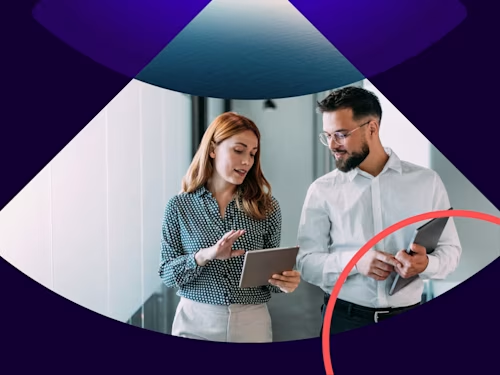
8 Answers to Electronic Signature FAQs
Are you looking to adopt electronic signatures? We’ve answered 8 of the most frequently asked questions about electronic signatures & Docusign eSignature.
- 1. What is an electronic signature?
- 2. What are electronic signatures used for?
- 3. Are electronic signatures legal?
- 4. How do I know Docusign's electronic signatures are trustworthy?
- 5. How are electronic signatures better than handwritten "wet" signatures?
- 6. What documents are supported?
- 7. Who uses eSignatures?
- 8. Where do I get more information about how eSignature works?
Table of contents
- 1. What is an electronic signature?
- 2. What are electronic signatures used for?
- 3. Are electronic signatures legal?
- 4. How do I know Docusign's electronic signatures are trustworthy?
- 5. How are electronic signatures better than handwritten "wet" signatures?
- 6. What documents are supported?
- 7. Who uses eSignatures?
- 8. Where do I get more information about how eSignature works?

1. What is an electronic signature?
Electronic signatures offer a way to sign documents online. In simple terms, an electronic signature, or eSignature, is an electronic indication of intent to agree to or approve the contents of a document. Electronic signatures can help to prove the origin of a document, and they also may have different levels of complexity. Advanced electronic signatures (AES) can authenticate, track and store signatures and signer information. Electronic Signatures come in many forms. They can be:
Typed
Scanned
An electronic representation of a handwritten signature
A unique representation of characters
A digital representation of characteristics, e.g. fingerprint, retina
2. What are electronic signatures used for?
Electronic signatures are used for many kinds of documents and transactions, both for personal and business use. Some examples include contracts and agreements, loans and leases, forms, orders, and more. Businesses in nearly every sector can benefit from using e-signatures and they are often used for financial services agreements, HR documents, healthcare forms, non-disclosure agreements and government services. Many organisations implement electronic signatures because it offers several benefits including increased flexibility. It allows employees and customers to sign documents remotely, streamlines productivity, improves experiences and reduces risks.
3. Are electronic signatures legal?
In a nutshell, yes. Electronic Signatures are legal in the UK, even post Brexit. Almost every civilised country in the world has adopted an electronic signature law. To put it into context, a document signed using Docusign eSignature has never been overturned in court. This article gives much more information on the European eSignature legality and this comprehensive guide to the legality of eSignatures highlights law on e-signatures across the globe. Learn more about the legality of electronic signatures in the UK.
4. How do I know Docusign's electronic signatures are trustworthy?
Are electronic signatures safe? When agreements and contracts contain highly sensitive information, you can't afford to take risks. In addition to being legally binding, electronic signatures have in-built security measures. Docusign's electronic signatures feature robust security measures:
Have bank-grade security: Docusign meets some of the most stringent US, EU, and global security standards. Each eSignature is unique, documentable, encrypted, and tamper-evident. We guarantee multi-faceted verification of signing events to ensure you can sign in the knowledge that your data is secure.
Have an audit trail: We provide a complete and extensive audit trail that serves as third-party validation of transaction completion, including information such as the signer's email address, name, authentication method, IP address, time-stamp, and more.
5. How are electronic signatures better than handwritten "wet" signatures?
There are many ways in which eSignatures outperform their handwritten counterparts.
Cost savings: There are many costs associated with paper-based agreements and contracts including printing, filing, and mailing.
Increased Speed: eSignatures allow you to automate entire workflows so that transactions and agreements can be immediately created, circulated, revised and signed. Up to 80% of agreements are completed in less than a day, and 44% in less than 15 minutes.
Security: Electronic Signatures are tamper-proof and use the strongest data encryption technology available. In contrast, wet signatures can be forged or tampered with.
6. What documents are supported?
You can use electronic signatures to sign virtually any type of document and eSignature has over 350 integrations including the tools and business systems you are likely to use already including Salesforce, Microsoft, Google, and more. Docusign is also available for iOS, Android, and Windows devices. Here's some of the types of document you can sign online. Learn how to sign PDFs digitally using DocuSign.
7. Who uses eSignatures?
Docusign eSignature is an electronic signature solution trusted by hundreds of millions of users and organisations worldwide. In the UK, leading organisations like Santander, AstraZeneca, Unilever and Specsavers all use Docusign. Discover their customer stories.
8. Where do I get more information about how eSignature works?
Discover more about getting started with eSignature or sign up for a free trial. Learn how to electronically sign a document using DocuSign's easy-to-use platform.
Related posts
Docusign IAM is the agreement platform your business needs



